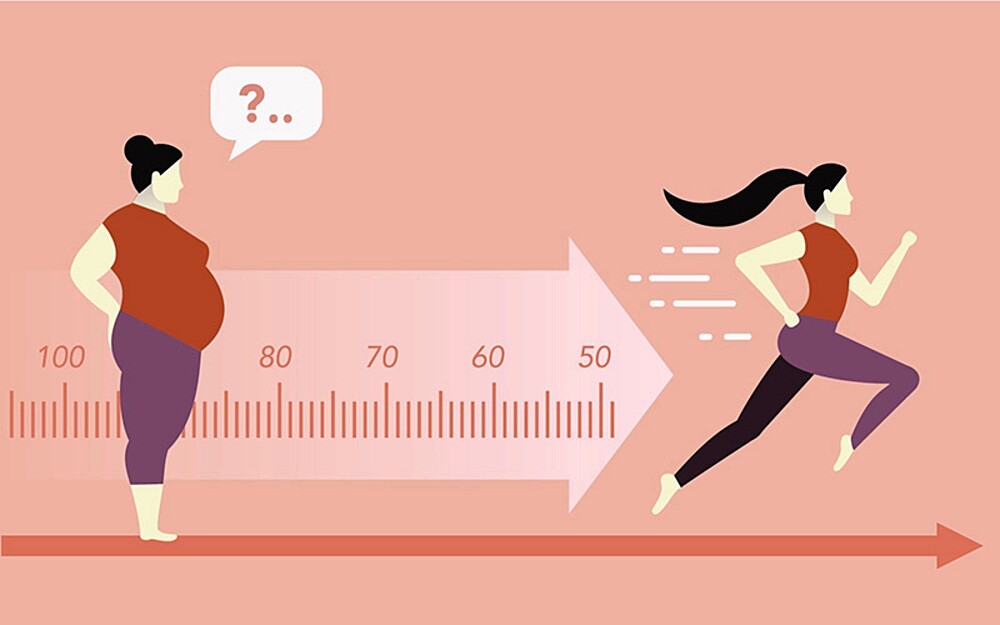Losing weight by jogging is effective and economical. With our program you can quickly and easily get fit and lose a few kilos in a short time!
It is difficult to lose weight without a bit of exercise (although losing weight without exercise can work quite well). However, losing weight by jogging is not only much more effective, it also uses up almost all of our muscles and makes us really fit.
Lose weight by jogging: How does it work?
Jogging boosts the metabolism and thus the burning of fat. Calorie consumption should be kept in mind – we can only lose weight if we consume fewer calories (kcal) than we burn and consume.
Caution – Beginner’s mistake!
Specially beginners oftenly fall into the trap: one has just walked for half an hour, then one can also treat oneself to a chocolate bar or a piece of pizza. But exactly this often leads to the fact that in the worst case you will end up taking up more kcal than you have used up in training. We should avoid such sins if possible, because they are not as small as they seem. Better suited for post-workout nutrition: healthy snacks such as nuts, wholemeal products or fruit and vegetables.
How do I walk correctly?
Beginners should never overstrain themselves directly at the beginning – this is one of the most common mistakes and not only leads to sore muscles, but also ensures that the desire to jog is quickly over. When you go jogging, the decisive factor is rather a slow, but as long as possible running training, the build-up of muscle mass and consistent staying power. The aim is to boost the metabolism permanently. This is a re-learning process for which the body needs a little time.
The right interval training
During this slow running training at a quiet pace, the effort is light to moderate. This way one can rather hold out. Because the important thing in our weight loss running training is not only to burn calories while jogging, but also after running in the recovery phase. The “afterburning” lasts about as long as the respective interval training. This is exactly when the body draws energy from the fat reserves. And it does not fall back on the easily accessible carbohydrates from the muscle mass and blood, as is the case with very strenuous runs.
Generally speaking, if you want to lose one kilo of fat, you have to save 7000 kilocalories in your energy balance. Runners consume an average of 600 kcal per hour. Of course, this depends on body size and weight as well as training intensity.

